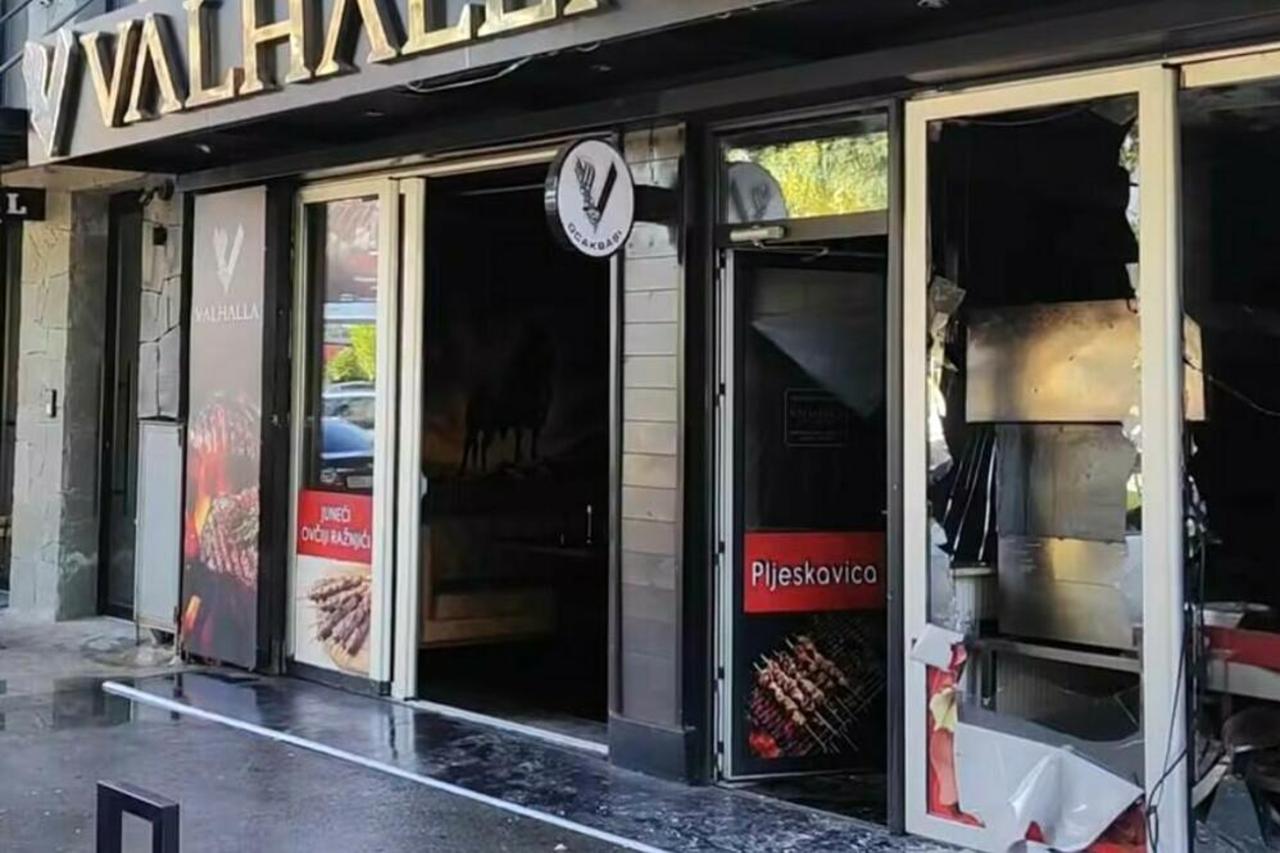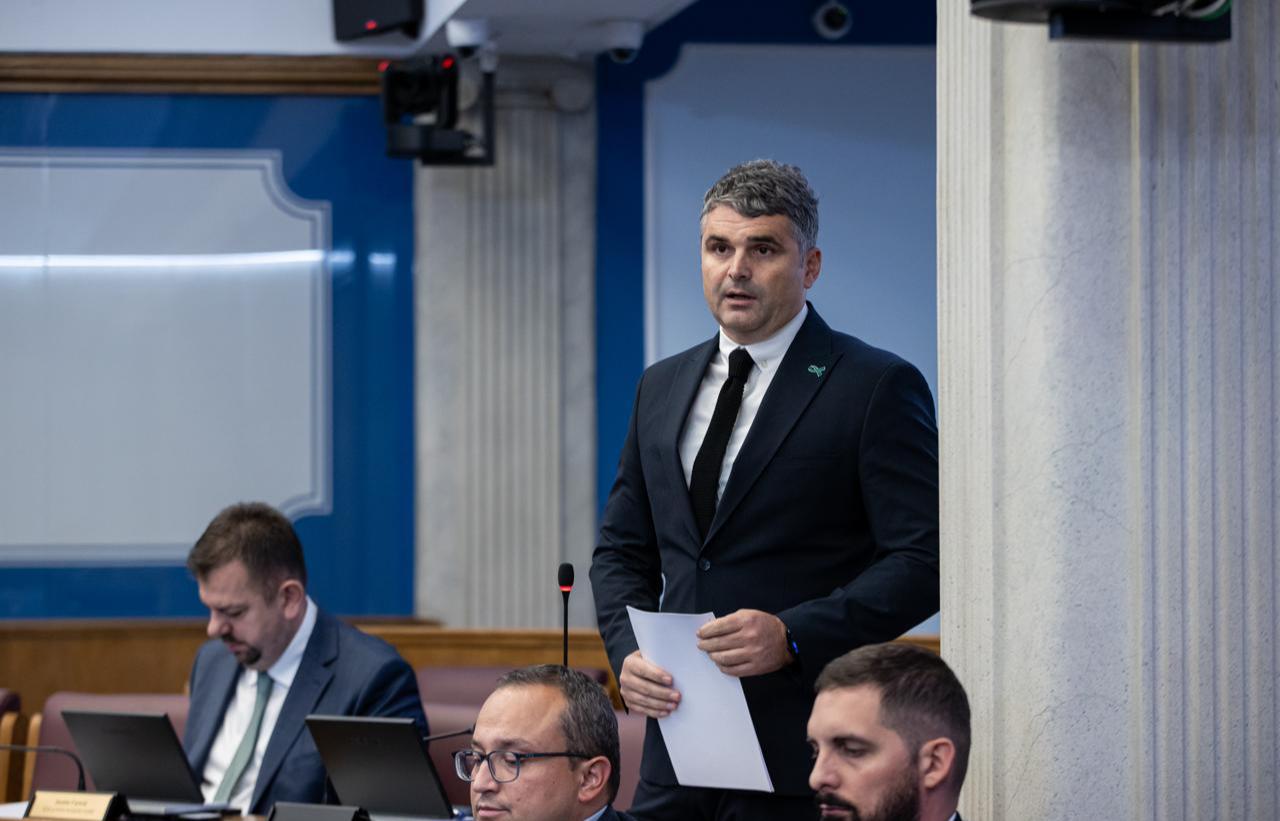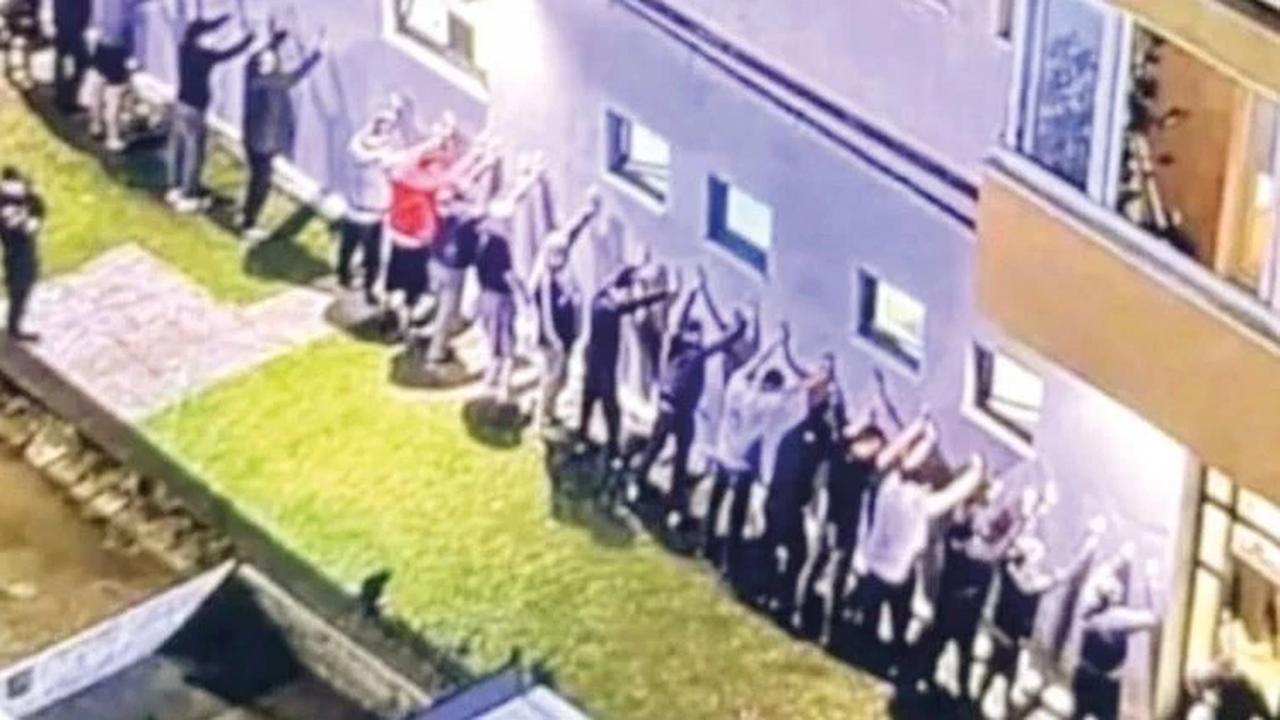
Montenegro's government temporarily suspended its visa-free travel regime with Türkiye on Monday, a swift policy reversal following a weekend of violence that began with the stabbing of a local man and escalated into anti-Turkish protests.
Police said the unrest began Saturday night when a Montenegrin man was stabbed during a fight. Two suspects, a Turkish and an Azerbaijani citizen, were arrested in connection with the assault.
In subsequent operations, police detained over 40 other nationals from both countries. An official statement noted that eight individuals were ordered deported and seven were fined.
The stabbing prompted retaliatory gatherings over the weekend. Local media reported that nationalist groups vandalized Turkish-owned property and chanted anti-Turkish slogans, including "Kill the Turk."
In response to the escalating tensions, Prime Minister Milojko Spajic announced the suspension of the visa-free regime, which was first established in 2008.
Spajic said the action would "take into account the interests and status of around 14,000 Turkish nationals currently in Montenegro."
The decision impacts a significant economic and social partnership. According to official data from February, Montenegro hosts about 320,000 Turkish visitors annually. Turkish firms are major investors in the country's contracting, real estate and hotel sectors, making Ankara one of Podgorica's most important economic partners.
The relationship is reciprocal, with many Montenegrins traveling to Türkiye for tourism, health care, education and business.
The sudden move raises questions about the stability of the bilateral relationship and the drivers behind the government's decision.
In an exclusive interview with Türkiye Today, Ilir Capuni, a Montenegrin member of parliament with the Albanian Alliance coalition, discussed the government's response, the atmosphere in Podgorica, and the future of Montenegro-Türkiye relations.

Regarding the outrage over the weekend, which he described as a "nuclear chain of reactions," Capuni emphasized that the reaction did not happen overnight because of a single incident.
"There has been a lot of material around," Capuni added, noting ongoing disinformation about the number of Turkish citizens in Montenegro.
He said this reached a level where "even some former politicians and journalists" claimed "there are 100,000 Turks living in Montenegro" and that "Turks have some agenda in Montenegro."
Additionally, Capuni said an "anti-Turk sentiment" already exists in Montenegro, which he described as a narrative originating from history.
So one can say, with all this in mind, that the outrage over the weekend was an accumulation of a "racist narrative" and disinformation that has been going on for months.
Evaluating Montenegro's decision to "temporarily suspend visa-free travel" for Turkish citizens, Capuni said Montenegro is "shooting itself in the foot."
He added that if the Turkish government decides to reciprocate, meaning require visas for Montenegrins to enter Türkiye, "it will affect Montenegrin citizens more because we are using your hospitals and schools."
Highlighting major investments by the Turkish Cooperation and Coordination Agency (TIKA) in Montenegro, Capuni said that if Türkiye decides to stop these investments, it would affect Montenegro far more than it would Türkiye.

Montenegro has been a "safe haven" for individuals with criminal backgrounds, and criminals from Türkiye were not exempt from this. It's already a very well-known fact.
Asked about Montenegro's policy on border security and background checks, Capuni said the Montenegrin Interior Ministry failed to identify criminals entering the country, saying, "The Ministry of Internal Affairs failed to identify these criminals and failed to communicate with Turkish authorities."
He said that after all this, the blame was put on Turkish citizens, but he argued it was all on Montenegro, saying, "It's our fault... It is our full responsibility to vet people on the borders."
He noted that there are Turkish citizens, such as doctors, who came to Montenegro and are investing in the country.
According to Montenegro's Statistical Office, there are 24,278 foreign businesses in Montenegro, of which 6,866 are owned by Turkish citizens.
When asked whether Turkish investments and the number of Turks will decrease in light of these recent developments, he answered, "Definitely, they will."
The situation in Podgorica and how it will unfold remains uncertain. Türkiye said it is “closely monitoring the situation in every aspect,” but whether Ankara will impose a reciprocal visa policy is still unclear.
Turkish residents in Montenegro who spoke to Türkiye Today said they remain uneasy.
One source emphasized being afraid to leave home, claiming that in some areas, groups of Montenegrins have begun gathering and observing Turkish citizens.
Meanwhile, the recent developments and the growing wave of racist tension in Montenegro could trigger a butterfly effect across the Balkans.
With Turkish communities and investments spread throughout the region, especially in Bosnia and Herzegovina, the risk of escalation is real.
Preventing the crisis from deepening any further is in everyone’s best interest to avoid reliving the painful memories of the Balkans’ turbulent past.